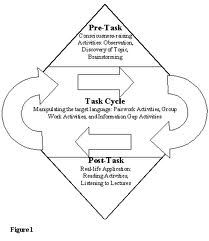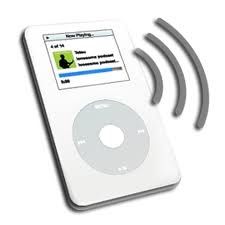ESL Teacher Professional Development

Improve your English Teaching Skills
Teaching English abroad is not an easy thing and professional development for Tesol teachers is an even harder thing to do well. Perhaps you struggle to make your ESL lesson plans interesting and don't know where to go for teacher education. I have lots of ideas for easy, practical things that you can do to develop in your career as an ESL Teacher. Your students will appreciate better lesson and you will feel more satisfied as you will be able to see your students gain confidence and picking up the language as they go.

Discover your Strengths and Weaknesses in Teaching English as a Second Language
It's a good idea to periodically (every year) make a list of your strengths and weaknesses as a teacher. For example, here is part of a list I made a couple of years ago:
"I know that my major weakness is grammar. I know the basics of English grammar but when it gets into anything intricate I'm a little lost as to how to explain it in a way that students can understand. For example, I taught a writing class once that was a bit of a dud because I just didn't really have the background knowledge required to do it well.
But, I know that my major strength is explaining things in an extremely simple way. My students have commented that my class is the best English class they have ever taken because they could understand everything. Simple grammar things, vocab words, speaking simply to explain games and activities are definitely something I'm pretty good at I think. Like I can take something that could potentially be kind of complicated and break it down for them so that a 5 year old could understand it."
The list had a few more things on it, but this was just by way of example. Then, once you've finished evaluating yourself, think of some action points that you do to improve. For example, to deal with my weakness in complicated English grammar, I'd really like to take the CELTA course because from what I've heard, it's heavy on the grammar teaching. And, I also have an English grammar book on my bookshelf just waiting to be read.
To capitalize on my strength, I will continue to plan lessons with simple in mind. It's tempting for me to come up with complicated games and activities but I need to keep reminding myself that simple is what works for me and my students.

Back to basics...simple things in teaching English as a second language
Thanks to David Deubel for this most helpful list of simple things to pay attention to when you're teaching English. Teaching ESL actually isn't rocket science, but the little things really do add up. Please check out the rest of his site as well. There is lots of good teacher training stuff there.
Anyway, check out this list of 25 small things you can to become an even better ESL teacher:
It's Okay to be Serious!

The Cambridge Celta: professional development for TESL teachers
If you're serious about teaching ESL, and don't have a background in it (or education) through your university classes, then you really should take the Celta course to get up to speed. You will learn how to teach ESL and make it work in the classroom. I've only heard good things about the course. But, be prepared! It's an extremely intense one-month course that runs 9-5 everyday. Expect plenty of homework on the weekends and at night. And of course, the more pre-reading you do, the better off you'll be.
The Cambridge Celta is the standard in the one-month ESL teaching programs. You probably shouldn't even waste your time with any other courses. Of course, having a Masters degree in Tesol or something is better, but if you don't have the time, money, or inclination then this is the next best thing. It seems like almost any job in Europe, South America, the Middle East, and many parts of Asia want a Celta certificate along with a uni degree.

Task-Based Teaching from David Nunan
An online course
For an introduction to task based teaching, you should check out David Nunan's most helpful site. He's quite a famous guy in the ESL world and you'll see his name in plenty of textbooks and also hear lots of talk about him at conferences around the world. He most generously offers most of his information to the public on his website. Expect to come away with lots of new ideas for your classes.
Click the link below to see the small task-based learning course he offers for free to anyone who would like to take it:

Podcasts to assist you in Teaching ESL
A cheap, and convenient way to get some professional development in is to listen to some podcasts. You can listen while you're commuting, or working out at the gym. Plus, you can maybe buy yourself a new IPOD and call it a work expense? You can search on Itunes for these podcasts I recommend. They should be easy to find.
1.ESL Edgycation
2. ESL etc
3. ESL teacher talk
4. Public Speaker's quick and dirty tips
English Language Teaching Videos
- Videos from Andrew Finch
Plenty of excellent videos here on Teaching ESL. You could spend days gleaning insights from them.

Start a Blog to keep track of your progress in Teaching English Abroad
It's easy and free to start a blog. Many people use the free versions of Wordpress or Blogger which are very easy to use. If you use Wordpress, you have the added bonus of learning a new skill that employers value!
On your new blog, you can talk about your classes: what went well, what didn't go well. Games and activities that you use. Conversations about teaching with co-workers or friends. Read some ESL teaching material and reflect on it. The possibilities are endless. Here is my blog that you can check out:

Basic Teaching Tips for ESL Teaching
Some more good stuff from the EFL Classroom Look under professional development. My thoughts are in the brackets.
1. Write the target language on the board! (always a good idea, since not everyone can pick it up just by listening and it helps to reinforce things, if they can see it).
2. Always provide a simple agenda (this is something I'm incorporating this semester into my classes...so far, classes are going much more smoothly when the students can see the beginning, middle and end).
3. Always teach the big picture first and then the details (obvious to me...not to everyone maybe?)
4. Pause often (I had one Korean teacher who would never give me time to think. She would just butt in with the answer when I just about to say it. It was the most annoying thing and even after I told her to stop doing it, she still would. She was just too impatient to let me go at my own, slow pace in formulating Korean words and sentences. I vowed to never be that teacher. So now, I just wait patiently, very often for responses. I will never give a response after I've asked the students for one. I don't care how long it takes. Someone needs to say something, even if it's one word and it's wrong).
5. Review (I never used to do much review, assuming the students would do it on their own. This isn't the case. And learning a language is all about learning the same things, over and over and over again, until there is no way that you can't possibly not know it!)

Professional Organizations for teacher education
Almost all countries that have ESL teachers, have some sort of professional organizations. There organizations usually hold conferences and offer many chances for development as a teacher. You can even have a change to present some of your own ideas. The presentations range from the entirely practical to the more academic. Plus, through networking you can meet some people, which is always helpful if you're looking for a job.
I live in Korea, and I've found that being involved with KOTESOL has been a very rewarding experience.
Professional EFL Organizations in Asia
- KoreaTESOL
South Korea - Jalt
Japan - Camtesol
Cambodia
ESL Speaking: Give Feedback

Things I wish I had known when I had my first ESL job
...on my first day of teaching, that I know now:
1. Teacher's books are usually important and helpful. Use them.
2. The teacher should talk far, far less than the students. Do anything you can to involve them and make them the center of your lesson.
3. You don't need to be super-crazy/funny in order for your students to like you. Just be kind, gracious, fair and consistent.
4. When you play a game, have all the steps worked out in your head. And be fair. Have some element of random luck so even the weaker students have hope.
5. Don't play favorites. That's not cool at all. And students will try to play you, but resist. All the students will like you better in the end if they know that you will treat everyone the same.
Helpful Websites for TESOL teachers
There are plenty of good ESL websites out there with sections on professional development and helpful tips for the classroom. Check out 3 of my favorite ones:

Learning a Language will help you be a better ESL Teacher
If you're a language teacher, you should also be learning a language of your own so that you can have some of empathy or understanding for what your students are going through. Learn whatever language the students that you teach use. They'll be so impressed and it will win you huge respect points!
Observe an ESL Class (or two, or three)
It can be very helpful in your own teaching to observe a colleague's class. Better yet, observe 2, or, 3 or 4 other teachers and pick up a few new things that you can use in your own class. Pay attention to their mistakes and reflect on whether you do them yourself. Pay attention to what they do well and see if you can integrate that in your classroom.
You can also have an experienced teacher observe your class and give you some constructive feedback.
Use Google Documents to keep track of your ESL Lesson Plans
Do you know the genius of Google docs? It's helped me become a much more organized person, with regard to my teaching for the following reasons:
1.I no longer worry about USB sticks, or emailing myself documents, or any of that annoying stuff. I just use Google docs and then I can open anything, anywhere that has internet. This works amazingly well for any Powerpoint stuff that I use in class.
2. I now keep a much better record of my lesson plans/syllabus/tests. In fact, I do them all on Google docs and plan on keeping them forever. And, it will be so easy to search for what I need. And, I can revise them easily from anywhere.







